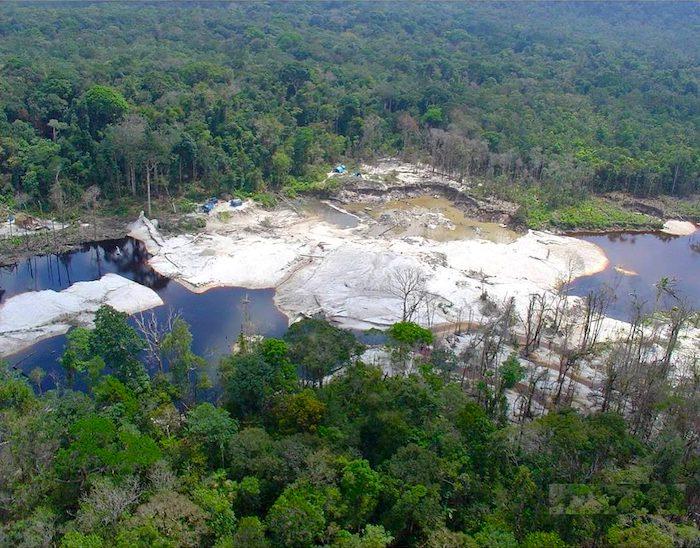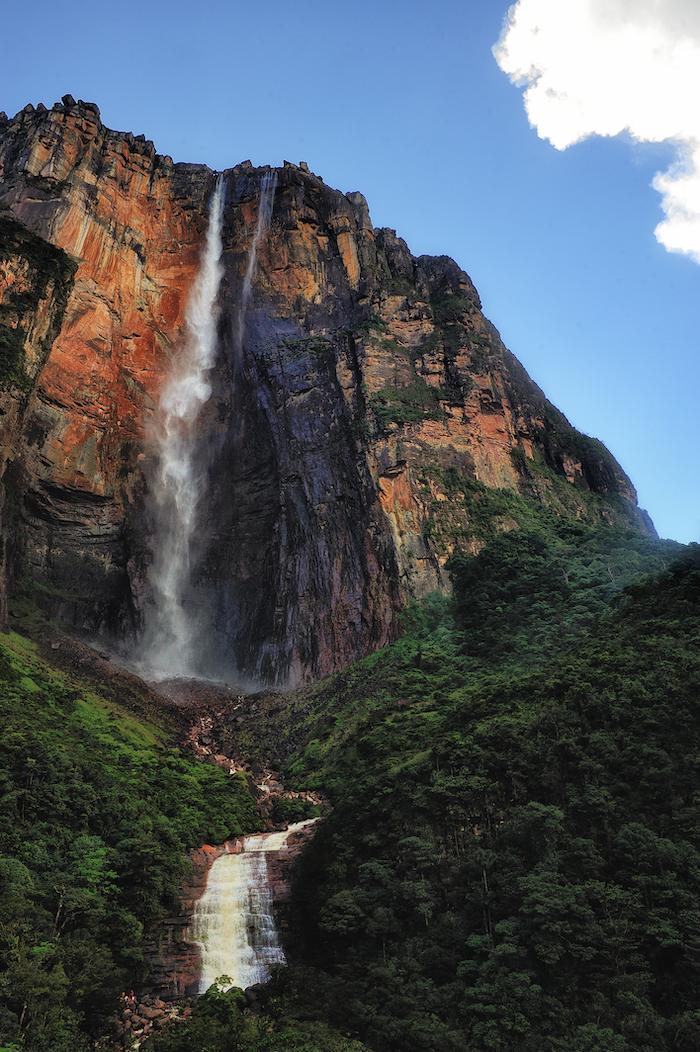The sand dunes of Médanos National Park in Venezuela/Pixabay
Traveler Special Report: Venezuela's Imperiled National Parks
In the midst of political and economic turmoil in this South American country, some of the world’s most scenic and biodiverse public lands are at risk.
By Kim O'Connell
Venezuela is a nation of vast natural bounty, its 43 national parks encompassing more than 20 percent of the South American country’s land area. This “megadiverse” nation includes nearly 1,500 bird species, more than 350 mammal species, and tens of thousands of plant species, including the Flor de Mayo orchid, the national flower. The storied and fertile Orinoco River cuts through the country’s heart. Angel Falls in Canaima National Park is the world’s highest waterfall, tumbling nearly 3,300 feet, and significant populations of indigenous peoples, including the Yanomami and Pemon, reside in these protected lands as well. And yet the future of these incredible places is in jeopardy.
As Venezuela faces an economic, political, and humanitarian crisis under the contested regime of President Nicolás Maduro (successor to Hugo Chávez), the government is managing the country’s national parks with an unspoken policy of neglect and abandonment, according to park advocates. At least one park, Yapacana, is suffering from what a private group calls “extreme ecocide.” As the current crisis has worsened, illicit activities have run rampant in Venezuela’s national park system, including illegal mining, deforestation, agriculture, and road-building. The parks also provide cover and refuge for drug traffickers and guerrilla groups. Although the government has dismantled some mining operations, these actions have been few and far between, and possibly undertaken merely for political show, according to park observers.
“At this moment there is very little management and very little law enforcement,” says a longtime park expert in Venezuela, who asked for anonymity to prevent harassment or retribution. “Many forces have come into the parks, illegal logging and illegal building of weekend houses, road building, and mining, which is the most striking problem we’re facing, and the laws are not enforced.”
Furthermore, Inparques—Venezuela’s government park agency—is chronically underfunded and understaffed. “There’s a political will to abandon national parks,” the source continues. “Personnel is quite scarce and many park rangers are living below the poverty line.” This source also suggests that complicity between law enforcement and armed guerrilla groups that protect mining sites is common.
Not surprisingly, tourism has trickled to a standstill, and this March the U.S. State Department issued a Venezuela travel advisory, citing “crime, civil unrest, poor health infrastructure, and arbitrary arrest and detention of U.S. citizens.” Furthermore, the volatile political situation has caused international NGOs to end discussions and partnerships that might have provided some assistance or research on the ground.
One private advocacy group, SOS Orinoco, has been investigating the situation in the country’s parks. The group has already released two out of an expected three reports for IUCN (the International Union for Conservation of Nature) and UNESCO, as well as any other interested parties, that focus on the specific threats to Canaima and Yapacana national parks, with a third report about an as-yet-undisclosed park to be issued sometime in April. The reports are based on interviews with people who live in or near the national parks (although no sources or authors are named to protect their identities), in addition to detailed analysis of satellite imagery.
At more than 11,000 square miles (about as large as the state of Maryland), Canaima National Park is a province of thick forests, rocky tabletop mountains known as tepuis, and cliffs and waterfalls. It’s the only one of Venezuela’s parks designated as a UNESCO World Heritage Site.

Illegal gold mining in Serranía de la Neblina National Park/SOS Orinoco
Yet SOS Orinoco’s report indicates that illegal gold mining has increased significantly at Canaima in the last decade. Satellite imagery taken in the last two years shows that 15 mining sites are located inside park boundaries and 18 are found in the vicinity of the park; smaller sites that can’t be captured on satellite imagery are likely to exist, as well. Mining activities in Canaima have widespread ecological impacts, according to the report, including the introduction of sediment and toxins into waterways, the hunting of endemic wildlife, and the depletion and loss of vegetation and scenery, with its attendant impacts on tourism.

Angel Falls, Canaima National Park/Paulo Capiotti via Wikipedia
The second report on Yapacana states that gold mining is so extensive that the park is suffering from a case of “extreme ecocide” and that it has “without a doubt…suffered the highest level of destruction” in Venezuela – with nearly 5,000 acres now devoted to mining activities. Endemic plant communities in the park are routinely dug up to make away for roads and structures.
SOS Orinoco’s goal is that its reporting will result in UNESCO adding Canaima to its “World Heritage in Danger” list, but so far, no such action has occurred. “We understand that the report was received by IUCN and UNESCO,” says an SOS Orinoco spokesperson who asked not to be identified out of concern of reprisal. “[They] in turn informed the government of Venezuela that they had received the report from an NGO, shared it with the competent authorities in Venezuela and asked that they formally reply to UNESCO by February 1, 2019. We heard through our sources at Inparques that they had not submitted a response. This is highly irregular…and telling.” (This author’s attempts to seek comment from UNESCO’s Latin American group have so far been unsuccessful.)
Aside from the danger to ecological resources, the human impact is grave, the spokesperson says, with indigenous people suffering from a lack of clean water and from outbreaks of malaria and other diseases. Armed groups threaten their lives and livelihoods and limit access to traditional homelands and sources of food and water. At the same time, some indigenous people have also turned to illegal mining in certain parks, to seek some currency with which to survive. In December, a member of the Pemon indigenous group was killed in Canaima during a clash with security forces who were allegedly attempting to remove a mine.
Despite the crisis, the silence from international conservation groups has been deafening, according to some observers. (The Nature Conservancy’s 2018 Latin America Annual Report, for example, makes no mention of Venezuela, aside from a reference that the region has the highest waterfall.) “We have found that, due to the polarization around the Chávez-Maduro regime, environmentalists have not wanted to touch this subject because they are afraid of losing access to Venezuela or because they have been misinformed by the rhetoric regarding the Maduro regime’s claim to be promoting ‘ecologic mining’ and protection of indigenous peoples in Venezuela, when the evidence points to exactly the opposite,” added the SOS Orinoco spokesperson. “Never in the history of Venezuela has a government done so much damage to the environment nor to the indigenous people. So it’s urgent that citizens and officials in the U.S. and beyond raise their voices and condemn the behavior of the Maduro regime.”
The only hope, park advocates say, is a new government willing to enforce the laws that protect the country’s extensive national park system—or to enact new laws. In January, the opposition party installed Juan Guaidó as the acting president of Venezuela, but so far Maduro isn’t budging, and the situation is far from settled. “The fate of the national parks,” says the anonymous source in Venezuela, “is very much linked to the fate of the country as a whole.”


Comments
Sad remark from someone who is not Venezuelan and is not going through the hell so many Venezuelans are living. This person should visit us. Come and see how a great country has become a miserable place. If you, by any chance, are being paid, then I ask you to think of the misery you are supporting. Do not sell your heart. Do not be a pimp of your own soul. If you are not being paid, there are 2 options: Either you are just a useful fool, the perfect kind of people these crooks love so much; or you are also evil, full of rage. Think of the pain of my fellow Venezuelans and feel the light that is trying to enlighten you...